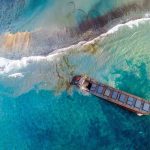Charterers and insurers are demanding more transparency in vessel operations, yet many maritime companies still resist sharing critical data, citing mounting cyber risk concerns.
That was one of the key takeaways from a webinar held recently by Oceanly to explore the impact of Artificial Intelligence (AI) and how as ships and shipping operations get smarter what this will mean for the way they are operated and regulated.
Giampiero Soncini, Managing Director of Oceanly, leading provider of fleet performance solutions, told the webinar entitled ‘Smart Ships, Smarter Operations: The Digital Evolution of Maritime Technology’: “Being protective in an industry like ours is a mistake and it’s a danger because we have to strive to get better ships, to make them safer and to protect the environment and this comes only with transparency.”
He added: “Sharing data allows us to build better equipment and manage vessels in a much better way. Today, charters and insurance companies want more clarity in how a ship is managed.”
The webinar heard that although transparency is vital and data sharing is key, it needs to be done so in a secure way, as many companies remain concerned about integrating more technologies into existing systems due to cybersecurity risks.
Mr Soncini explained that when Oceanly was first started, there was resistance from some ship owners to allow Oceanly to share the data with charterers, and he is still seeing this trepidation across the industry.
“Data is vital but it is also vital that it is available and distributed without having to necessarily know where it is coming from,” he said.
With its innovative Oceanly Performance solution, designed to streamline emissions management and compliance, Oceanly collects and analyses data (from whatever equipment is connected to Oceanly Data collector) every five seconds, resulting in 17,280 data points daily compared to the single daily data point from noon reports. The analysis is available to allow fuel consumption, engine, hull, propeller, and navigation performance control. For instance, this level of precision allows for exact emission control and provides shipowners with the ability to demonstrate their compliance and efficiency continuously.
Another key discussion topic was the future for autonomous ships with the participants agreeing that on larger and more costly vessels, it would more likely be reduced crews of 2 to 3, rather completely unmanned ships. And, as more maritime technology is created and implemented, this increases the need for standardisation across the industry.
“Hopefully, digitalisation will bring standardisation, which is another failure in our industry,” commented Mr Soncini. “We are not standardising anything.”
“My hope is that in any case, we will continue to apply technology for the benefit of having well managed, and well run, ships.”
The panel of industry experts also included Feng-Yi (Sarah) Lee, Team Lead Industrial & OT Cyber Security – Maritime, DNV; renowned expert in autonomous shipping and maritime digitalisation, Ørnulf Jan Rødseth; and Hideyuki Ando, Director of MTI, NYK Line (NYK Group).
Source: Oceanly






